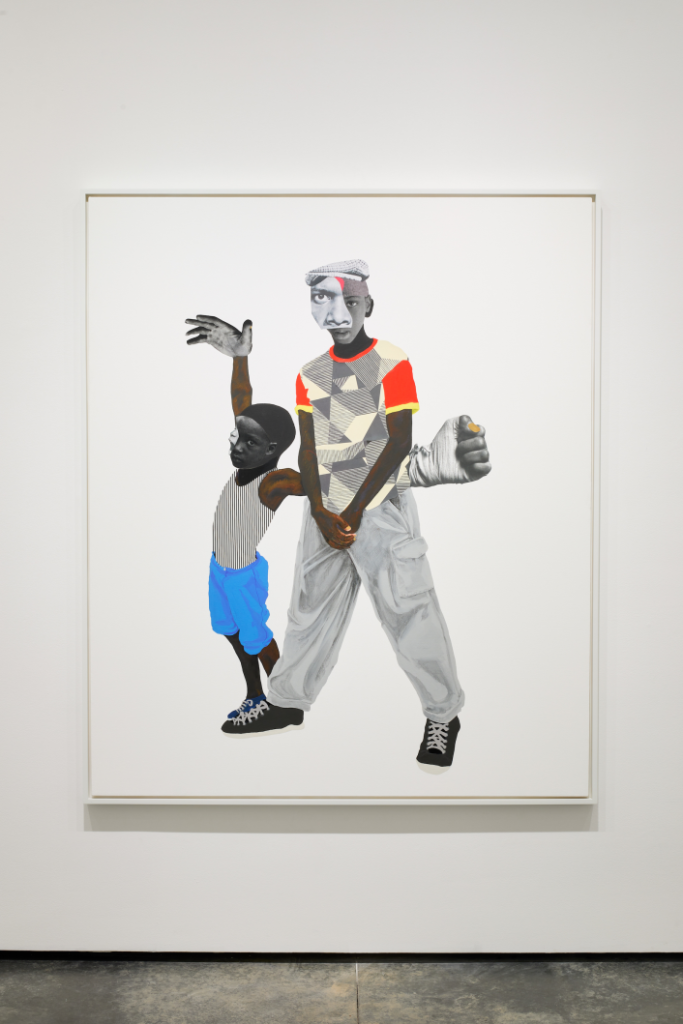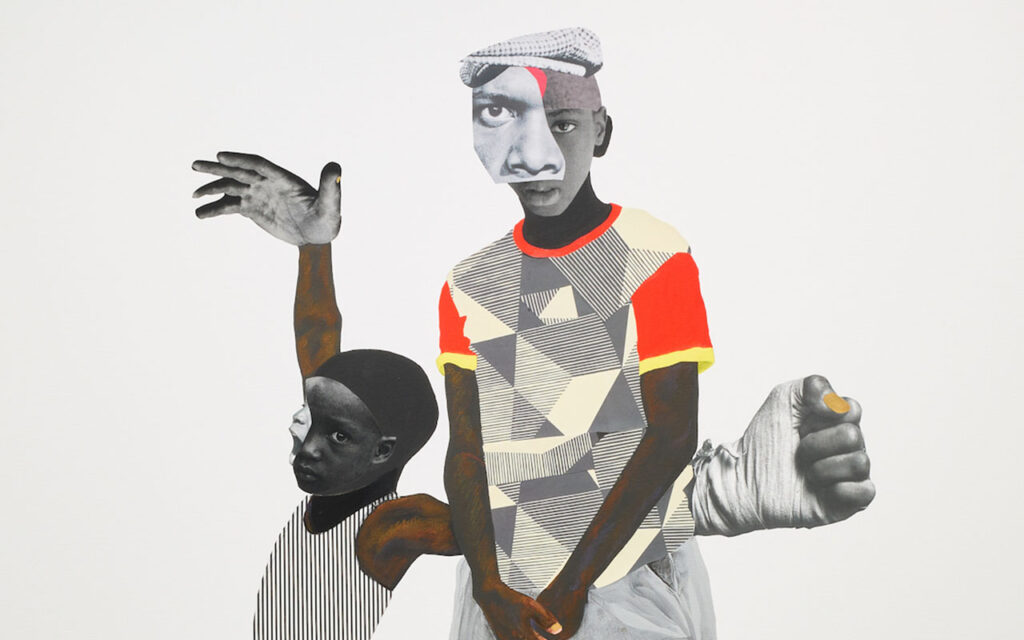In the ever-evolving tapestry of contemporary art, few artists capture the essence of innocence and vulnerability as masterfully as Deborah Roberts. With each brushstroke and collage, she creates a powerful dialogue around the themes of identity, race, and childhood. In this article, we delve into the captivating world of Deborah Roberts, exploring her artistry, her unique approach, and the profound message she conveys through her work.
The Artist Behind the Canvas

Deborah Roberts is an accomplished American artist, celebrated for her thought-provoking collages and mixed-media artworks. Born in Austin, Texas, her artistry is deeply influenced by her background in education, holding a master’s degree in art education from Syracuse University. Her experiences as an educator, as well as her perspective as an African American woman, are intricately woven into the fabric of her creations.
A Journey into Collage
At the heart of Deborah Roberts’ work is her distinctive collage technique. She carefully selects and arranges images from a variety of sources, including historical photographs, vintage magazines, and contemporary imagery. These elements are combined with her own drawings and paintings to form a complex visual narrative.
Themes of Identity and Innocence

One of the most striking elements of Roberts’ art is her exploration of identity. Her pieces often feature young faces, predominantly those of African American children, who become the central characters in her narrative. These faces exude innocence and vulnerability, transcending the boundaries of race and ethnicity. They remind us of the universal essence of childhood, untouched by prejudice or judgment.
Elegy for Lost Innocence

In her recent series titled “Elegy for Lost Innocence,” Roberts takes her exploration of innocence to a profound level. She delves into the vulnerability of childhood and the weight of societal expectations. Her works are a poignant reflection on the loss of innocence experienced by young Black children, who are often thrust into a world where their childhoods are cut short by the complexities of race and identity.
The Power of Representation

Deborah Roberts’ art is a powerful reminder of the significance of representation in contemporary art. Her work challenges us to confront the stereotypes and biases that affect marginalized communities, particularly children. Through her creations, she gives voice to those who have often been silenced, advocating for the recognition of their unique experiences.
The Intersection of Art and Activism
While Roberts’ art is undoubtedly a reflection of her personal experiences and identity, it extends far beyond self-expression. It becomes a form of activism, addressing critical societal issues. Her work invites us to participate in an ongoing conversation about race, identity, and childhood, inspiring change and empathy.
Conclusion
Deborah Roberts, with her artistry and unique approach to collage, offers us an opportunity to explore the concept of lost innocence, where children of all backgrounds can be children, free from the shackles of preconceived notions and prejudices. Her work is a bridge to understanding, a catalyst for change, and a celebration of the resilient spirit of youth. In “Elegy for Lost Innocence,” Roberts has given a voice to the voiceless and reminds us all of the beauty and vulnerability that reside within us.








